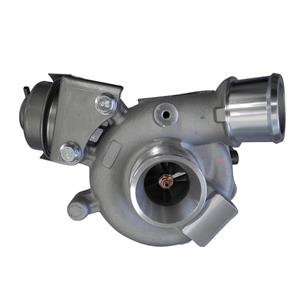More and more countries are mandating letter of credit payment! Can you accept such foreign trade orders?
More and more countries are mandating letter of credit payment! Can you accept such foreign trade orders?
How can foreign trade people prevent risks?
There is one more country that mandates that imports be paid entirely by letter of credit, and that is Egypt—
On February 14, the Central Bank of Egypt announced that from March, Egyptian importers can only use letters of credit to import goods, and instructed banks to stop processing exporters' collection documents. There are even orders from Egyptian customers that are being shipped, and the date of the bill of lading is changed to before February 12, otherwise the shipping company needs to issue a certificate.
Previously known "L/C importing countries" also include Bangladesh, Pakistan, Algeria, Nigeria and so on.
Bangladesh has relaxed restrictions this year. According to the latest news on February 8, the Bangladesh Congress approved in principle the new "Import Policy Regulations (2021-24)". The regulation stipulates that Bangladeshi retailers importing goods not exceeding US$500,000 will be exempted from issuing letters of credit and will be settled in accordance with contracts and wire transfers. Raised the previous cap by $300,000 in one go.
Choosing a good issuing bank is worse than choosing a good buyer.
When it comes to letters of credit, most foreign trade people will instinctively feel disgusted, because they feel that there are many twists and turns, and they will deduct money for discrepancies.
In fact, the letter of credit is a relatively safe payment method in "theoretical". The evaluation is based on bank credit. It is a separate document purchase and sale independent of the contract. It has nothing to do with the actual goods. In line with this, the issuing bank must honor the payment promise to the beneficiary.
Therefore, for the letter of credit issued by developed countries and well-known banks, the security is still high, but for buyers in developing countries (such as Africa and South America, Southeast Asia, etc.), it will be more troublesome to find a well-known bank to issue a letter of credit . Buyers in these underdeveloped countries have difficulty opening letters of credit from well-known banks, and even if they do, the cost is high. If you encounter a relatively "junk" bank, the letter of credit issued is naturally very risky.
When taking orders from developed markets, it is recommended to evaluate the credit level of the buyers themselves.
For example, when our exporter's conforming documents are submitted to the issuing bank, the buyer asks the issuing bank to pay, and the issuing bank has no reason not to pay. ;
When there are discrepancies in the documents submitted by our exporter, if these documents are no problem for the buyer to clear customs, and he needs your goods in particular, generally the buyer will also choose to ask the issuing bank to pay. At this time No matter how many discrepancies you have, the issuing bank doesn't care. After all, the money you have to pay has nothing to do with him. He is just an intermediary, and all risks have nothing to do with him.
Both cases are better. If, on the other hand, there are no discrepancies in the documents submitted to the issuing bank, and the buyer does not want your goods, the issuing bank may cooperate with the buyer and not pay.
Then the buyer will tell you: I have already told the issuing bank to pay, you wait, or I have issued a payment instruction to the issuing bank, and I don't know why I didn't pay.
In the end, the exporter collapses, returns or abandons the goods, so in this case, it is better to choose a good buyer than a good issuing bank.
Beware of illegal operations:
In addition, I would like to remind everyone that for some countries with poor commercial credit, the credit of some local banks is really messed up, and various illegal operations:
1) It is up to the buyer to decide whether to release or not;
2) The bank colluded with the buyer to delay the payment when there was no discrepant sight letter of credit presentation, or to issue the order without the customer having gone through the payment procedures;
3) The customer makes a quality claim to the exporter after picking up the goods or seeing the goods, and the exporter is forced to reduce the price, resulting in economic losses.
Therefore, when accepting L/C orders, be sure to pay attention to the following points:
1. Investigate the creditworthiness of the issuing bank and customers.
2. For "soft terms" in letters of credit.
3. Do a good job in the verification of the letter of credit to ensure that there are no discrepancies.
4. Strengthen the level of document making, and make documents according to the requirements of the letter of credit. When exporting, remember to ensure that the documents are consistent.
Check whether the payment guarantee of the letter of credit is valid, whether it is revocable, whether the letter of credit is effective, the letter of credit is secretly secured, etc.;
Check whether the payment time of the letter of credit is consistent with the relevant contract provisions;
Check whether the notification method of the letter of credit is safe and reliable;
Check that the documents specified in the letter of credit are available or timely.
5. Strengthen the level of document making, and make documents according to the requirements of the letter of credit. When exporting, remember to ensure that the documents are consistent.
6. Allow sufficient time for delivery and delivery.




